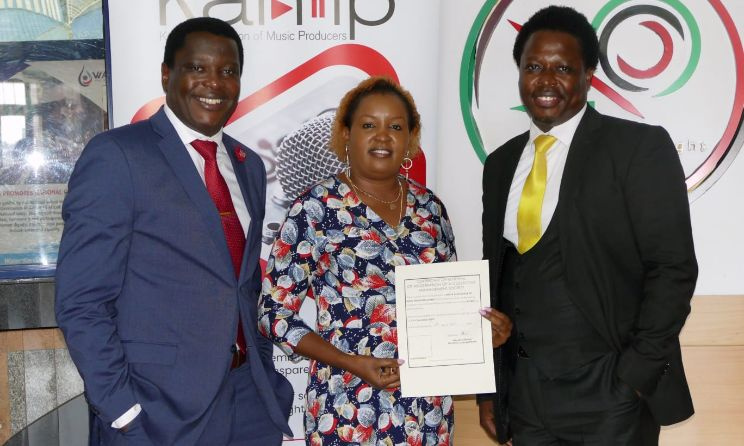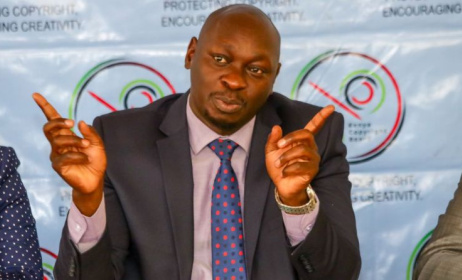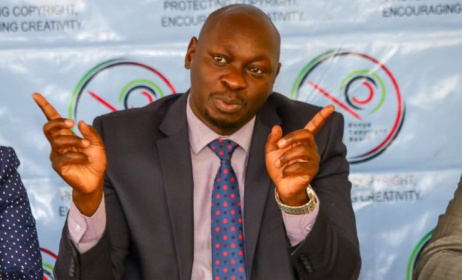Kenya: KAMP gets CMO licence
The Kenya Association of Music Producers (KAMP) has received a full-year collective management licence by the Kenya Copyright Board (KECOBO), allowing the organisation to collect and distribute royalties on behalf of music producers in Kenya.
 KAMP CEO Maurice Mwande Okoth, chairperson Faith Kithele and vice-chairperson Anthony Musembi pose for a photograph with the new collection licence.
KAMP CEO Maurice Mwande Okoth, chairperson Faith Kithele and vice-chairperson Anthony Musembi pose for a photograph with the new collection licence.
This follows KAMP’s successful completion of a forensic audit, royalty distribution and compliance set by KECOBO.
“This full-year collective management licence is a game-changer for us,” KAMP chairperson Faith Kithele said. “It provides stability and certainty for our operations, which will allow us to better serve our members and ensure that they receive their rightful royalties.”
KAMP will now be able to enter into licensing agreements with various music users such as bars, restaurants, and radio and television stations. The licence also gives KAMP provisions to fight piracy and protect the rights of music producers in Kenya.
KECOBO executive director Edward Sigei urged KAMP to continue operating within the law while maintaining high-standard operations.
“KAMP has demonstrated its commitment to transparency and accountability in managing the royalties of music producers,” he said. “This full-year licence is a testament to their hard work and dedication, and we encourage them to continue upholding the same standards.”
Meanwhile, a Kenyan legislator has called for an investigation into alleged embezzlement of artists’ royalties by Kenya’s collective management organisations (CMOs), with nominated senator Crystal Asige saying that the Senate Committee on Labour and Social Welfare should investigate the organisations’ management, collection and distribution of music royalties.
The organisations in question are KAMP, the Music Copyright Society of Kenya (MCSK) and the Performance Rights Society of Kenya (PRISK).
“The committee should provide a detailed breakdown of the royalties collected on behalf of musicians in the last five fiscal years including information on the sources of revenue and the specific amounts collected,” Asige told the Senate on 3 May.
Asige, who is also a singer and songwriter, wants the committee to confirm whether the CMOs distributed at least 70% of collected royalties to members as mandated by their governing rules.
She says the committee will be expected to table comprehensive statements of account for the past five years, which demonstrate that royalties were indeed distributed.
“The committee should appraise the Senate on existing mechanisms that allow for independent auditing of the financial records of MCSK, PRISK and KAMP to ensure transparency and accurate distribution of royalties,” she said.
The senator also wants the committee to state the measures, if any, that KECOBO has put in place to ensure the three CMOs are operating with valid licences and confirm the status thereof.
She said there had been an outcry from songwriters, musicians, producers and other creative artists that their interests were not being properly served.
Last month, popular Kenyan band Sauti Sol threatened to withdraw its membership from the MCSK, saying the collective society did not serve its best interests, and urged other aggrieved musicians to join them in exiting the CMO.



























Comments
Log in or register to post comments